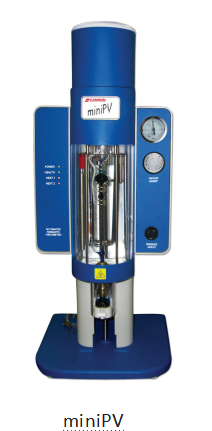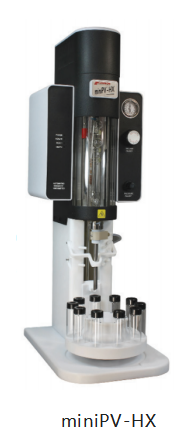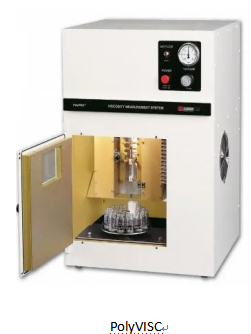Polymers are used in a wide variety of applications, from product packaging and textiles to building construction, industrial machinery and more. The material properties of a polymer are closely related to its relative molecular mass, which is an indispensable parameter in the research and development of polymer and quality control.
Among the relative molecular mass determination methods of polymers, the viscosity method is currently the most commonly used method. Generally, there are four main methods for determining the viscosity of liquids: capillary method, falling ball method, rotational viscosity method and pressure method. In chemical fiber and plastic laboratories, capillary methods are generally used.
Relative viscosity (viscosity ratio): the ratio of the solution viscosity to the solvent viscosity at the same temperature.
Viscosity (concentrated viscosity): For polymer solutions, the viscosity tends to increase with the increase of the solution concentration, and its specific viscosity also increases with the increase of the solution concentration, therefore the ratio of its concentration is often used to express the viscosity of the solution.
Logarithmic viscosity (inherent viscosity): The ratio of the natural logarithm of the relative viscosity to the concentration.
Intrinsic viscosity (limiting viscosity): refers to the limit value of the viscosity or logarithmic viscosity of the polymer solution at infinite dilution.
The intrinsic viscosity of the polymer is measured by the capillary method, and then its relative molecular mass is characterized.
In polymer testing, it is necessary to use different solvents for preparation according to the properties of the polymer. Many of the solvents have a strong taste or even toxicity, such as phenol-o-dichlorobenzene, etc. Therefore, the use of automatic polymer viscosity analyzers can not only improve the testing efficiency, but also ensure the safety of the operator.
CANNON miniPV series automatic polymer dilute solution kinematic viscosity tester can accurately and quickly measure the viscosity of polymer dilute solution, which can calculate the relative viscosity, intrinsic viscosity, reduced viscosity and intrinsic viscosity. CANNON miniPV adheres to testing method ASTM D2857, ISO 1628 ASTM D1243, D1795, D4243 , GB/T 1632, GB/T 3401, GT/T 12006, USP 911, PAPTAC G.24P, etc.


The miniPV series adopts improved Ubbelohde viscosity tubes with a standard viscosity range is 0.02~700cSt. If you have a wider range of needs, CANNON also provides customized services to meet your expectations. The highly integrated miniPV adopts Peltier refrigeration technology, which extends the detection range to 15~100°C without a need for an external refrigeration equipment which ensures high-precision temperature control with a deviation of only ±0.01°C. The miniPV provides thermal and optical sensor options, which can be properly matched according to the application. The test can be completed accurately, so that the use of the viscometer is not limited by the material. The miniPV is suitable for solvents of elastomers, plastics, TPE, copolymers, biopolymers, oligomers, prepolymers, resins and viscosity modifiers, etc., which are suitable for most polymer solvents. Small in size, it can be easily placed in a fume hood in order to reduce the escape of harmful gases. It is also equipped with a 10-position autosampler to improve test efficiency.
Sometimes polymer solvents are corrosive to a certain extent, which poses certain challenges to the corrosion resistance of the instrument. miniPV-HX uses new materials to meet the requirements of the instrument for corrosion resistance and acid resistance to solvents. Both miniPV-HX and miniPV adopt dual-solvent cleaning system and compressed air drying system to ensure the cleanliness of the instrument and shorten the cleaning time.
CANNON's PolyVISC automatic polymer dilute solution viscosity tester has stronger corrosion resistance that includes concentrated acid, etc., with a temperature range extended to 20~135°C. In addition, PolyVISC uses a unique air bath technology, which can quickly change the target temperature and reach temperature equilibrium. PolyVISC also has a wider viscosity range (compared to the standard miniPV): 0.3~60000cSt, which is compatible with the measurement of polymer viscosity and oil viscosity. PolyVISC has an 11-position automatic sampling tray, which can quickly complete the detection and is easy to operate.
PolyVISC uses a built-in cavity to minimize the escape of harmful gases. PolyVISC can be used to test polymer solutions with low solubility. While PolyVISC is equipped with 135°C to measure the temperature, it also adds an insulation system during the waste liquid discharge process, so that the polymer solution can be completely discharged from the system after the test, ensuring the smoothness of the testing operation.
CANNON Polymer Viscometer gives you a more environmentally friendly, faster and more convenient polymer viscosity test.

